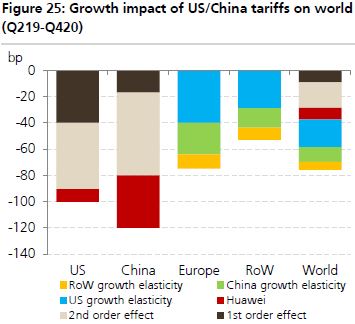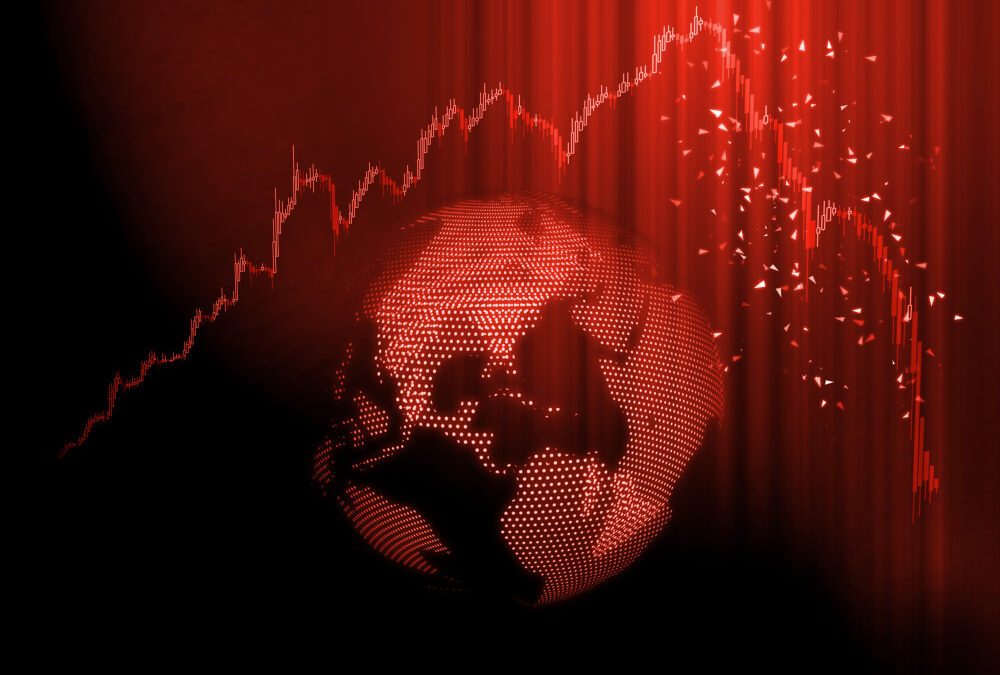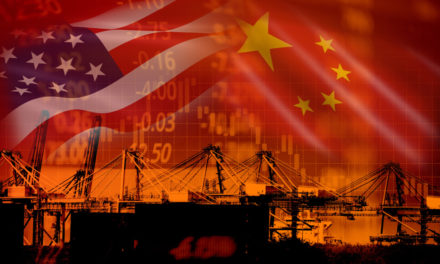Wall Street brokerage firm UBS told its clients Monday morning that the globe is “one step away” from recession and a bear market if the world’s two largest economies fail to make progress toward a new trade agreement this week at the G-20 summit in Osaka, Japan.
UBS doesn’t expect escalation to the ongoing tariffs fight between presidents Donald Trump of the U.S. and Xi Jinping of China, but a failed meeting between the two resulting in a new batch of tariffs would be “major” changes to global GDP and market forecasts, UBS’s global head of economic research Arend Kapteyn wrote in a note to clients.
“We estimate global growth would be 75 (basis points) lower over the subsequent quarters and that the contours would resemble a mild ‘global recession’ — similar in magnitude to the Eurozone crisis, the oil collapse in the mid-1980s and the ‘Tequila’ crisis of the 1990s,” he wrote.
If things go south in Osaka, the impact wouldn’t be felt immediately, but would grow in severity over several quarters as higher prices begin to stifle demand and growth. In the U.S., the cumulative reduction in GDP would be about 1% over six quarters, 1.2% in China and 0.74% in Europe.

Souce: UBS
Traders blamed the month of May’s market declines on the trade war, which mostly occurred after Trump tweeted on May 5 that tariffs on $200 billion worth of Chinese goods would increase to 25%, and that 25% tariffs on an additional $300-plus billion worth of goods would be ready “shortly.”
Further escalation could push global equities down 20%, Kapteyn wrote, with emerging markets taking a big hit.
“In global sectors, Materials stands out as most vulnerable, but some defensive and crowded segments are also at risk amidst weaker growth,” he wrote. “For a bottom up perspective, we lean on our prior work to highlight trade and crowded growth exposed stocks.”
All major central banks will be forced to ease policy, with the U.S. Federal Reserve likely to cut interest rates by 100 basis points on top of an expected 0.5% cut coming this July, pushing the 10-year Treasury note below its record low of 1.3%, he wrote.
China should expect its GDP to dip below 6%, with another 150 basis points of total social financing growth, which includes lending by banks and other institutions.
“Once policy makers have delivered the limited stimulus, investors will likely worry about them running out of options,” the note says. “In the trade escalation case, we expect US 10y yields to fall through all-time lows.”




